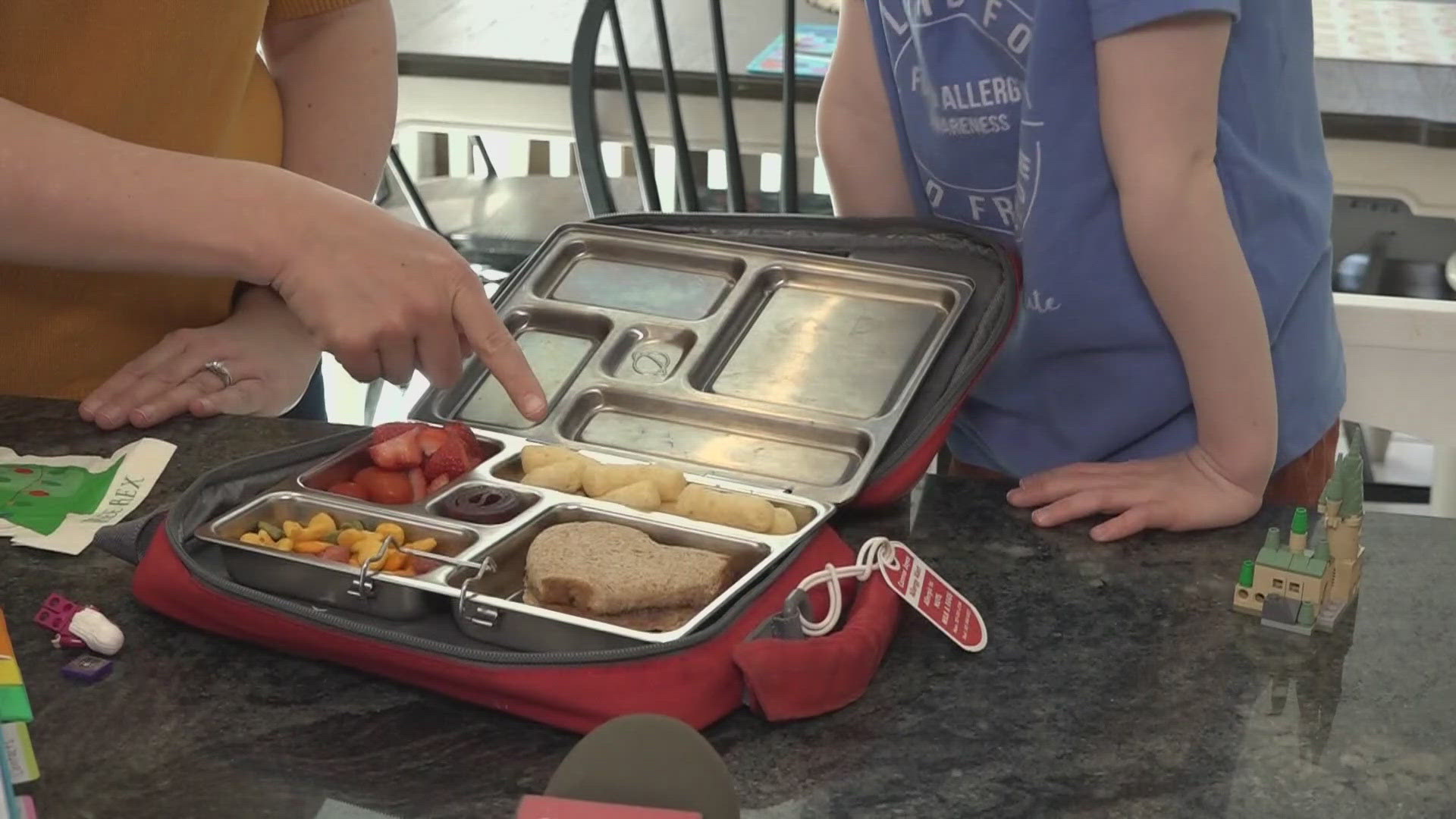HAMPDEN, Maine — According to Food Allergy Research and Education (FARE), some 33 million Americans live with food allergies, which equates to about one in 10 adults and one in every 13 children who adjust their lives and diets to better manage allergies that can be life-threatening.
With May being food allergy awareness month, FARE is challenging people to join its 33-mile challenge to raise money for food research. Anyone can join by signing up online.
Stephanie Joyce from Hampden signed up for the virtual 33-mile walk, bike, or run challenge. Her son, Connor. gives her more motivation than most to raise awareness.
"When he was 6 months old, I gave him a baby yogurt, and his skin started to turn red around his mouth," Joyce said. "It spread down to his neck, and eventually, from head to toe, he was red."
For many children, lounging in fresh-cut grass or scaling ropes on tree limbs would be enough to trigger an allergic reaction. But for Connor, it's not the grass or the pollen that he has to watch out for. All of his allergens are stowed away in the pantry or in the fridge.
"Eggs, peanuts, cashews, tree nuts, hazelnuts ... and peanuts," Connor said when telling NEWS CENTER Maine about the foods he's allergic to.
Connor is also allergic to yogurt. He can't eat or touch any of his food allergens. His mother said he vomits or breaks out in hives when he comes in contact with food he's allergic to.
Northern Light Health allergist and immunologist Rung-chi Li said medical professionals are not entirely sure what causes food allergies. He said the severity of symptoms and allergic reactions vary from person to person.
Some people can manage their allergies by practicing avoidance, but there are also two prescription therapies, Palforiza and Xolair.
Northern Light Allergy and Immunology is the only medical office in Maine that offers the FDA-approved therapies used to treat food allergies.
"It can be very severe like anaphylaxis," said Li of the severe allergic reaction that causes a person's immune system to release a flood of chemicals that can cause them to go into shock. It also causes a person's blood pressure to drop and narrows their airway, making it harder for them to breathe. Li said other allergic reactions could result in someone passing out or even dying.
Research from FARE shows that roughly two children in every classroom have a food allergy.
While allergists like Li are trained to recognize the symptoms, Joyce spotted her son's allergic reaction through her own professional lens, flexing her registered dietician skills and mom instincts.
"Now that I'm managing my son's food allergies, it feels very similar to what I was doing when I was worked as a school nutrition director," Joyce said. She preps Connor's meals following a strict food allergy treatment plan. His breakfast alone includes 15 different foods that are genetically similar to his allergens. The food is introduced in microdoses, helping build his body's tolerance over time.
He also visits the Food Allergy Institute clinic in California every eight to 10 weeks to receive allergy treatments geared towards putting his allergies in remission.
"For a long time, it really bothered me not knowing how I could control (things) when he wasn't under my care," Joyce said. But she said her son has been empowered to speak up for himself.
"He knows if someone else has touched his foods he can’t eat it," she said.
Connor takes the initiative to manage allergies and practices administering EpiPen injection treatments.
Managing a food allergy can be hard for people to understand, Joyce said. Although it may be an inconvenience to limit various foods that her son or other children may potentially be allergic to in a group setting, Joyce said she always wants her son to feel considered.
"We want to be included, and we hate that it might be an inconvenience to someone else not to serve a certain food at a party. But just ask us ways that you can serve something that we can help participate in ... or maybe we bring a special food," Joyce said. "We just want people to understand that this is really important, and for us, this is life-threatening. This is not just something we cannot do some days."

